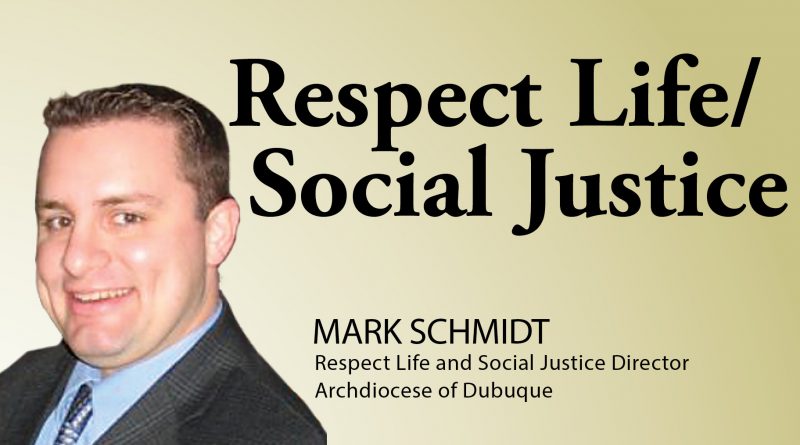Crime, punishment and Catholic teaching on the death penalty
We are made in the likeness and image of God, all of us. Each of us, made in that image, the image of the Trinity, a perfect communion, are by our very nature social and connected to one another by our very nature. Our intrinsic dignity as human persons and our intrinsic social nature must be taken into consideration when we talk about laws, criminal justice and punishment.
As the “Compendium of the Social Doctrine of the Church” states, the government: “has the twofold responsibility to discourage behaviour that is harmful to human rights and the fundamental norms of civil life, and to repair, through the penal system, the disorder created by criminal activity” (402).
Too often that is all the further we consider when discussing laws and punishments for crimes. Such an approach neglects the full teaching of the church. The compendium states: “Punishment does not serve merely the purpose of defending the public order and guaranteeing the safety of persons; it becomes as well an instrument for the correction of the offender … On the one hand, encouraging the re-insertion of the condemned person into society; on the other, fostering a justice that reconciles, a justice capable of restoring harmony in social relationships disrupted by the criminal act committed” (403).
Accordingly, “Punishment, in addition to preserving public order and the safety of persons, has a medicinal scope: as far as possible it should contribute to the correction of the offender” (Catechism 2266). When we inflict punishment on others because we think it will make us feel better, or, satisfies a desire to harm them as they have harmed us, or even for enjoyment, we are not upholding the teachings of our faith. The goal of any punishment must be to repair the harm done to others, to the guilty, as well as promote restoration of the guilty party to the rest of the community all the while respecting the dignity of all, including the offender.
It must also be remembered that even guilty persons of the most heinous crimes are human persons made in the image of God. No act can negate that dignity. This is why the church teaches that torture is intrinsically evil and can never be used, though too often it is (Compendium 404, “Gaudium et Spes” 27). One such practice is solitary confinement which has been proven to gravely harm the mental health of prisoners subjected to the practice. “Today torture is not inflicted only as a means of obtaining a specific objective, such as a confession or information … but is a genuine surplus of pain added to the actual suffering of imprisonment. In this way, torture occurs not only in clandestine detention centres or in modern day concentration camps, but also in prisons, institutes for juveniles, psychiatric hospitals, police stations and other centres and institutions of detention and punishment” (Address of Pope Francis to the Delegates of the International Association of Penal Law, Oct. 23, 2014).
The church’s approach to justice is called restorative justice, which recognizes that the primary issue is the harm done to persons and communities. We have a responsibility to heal those harmed; supporting survivors of crime and helping them to bring about healing for them. It recognizes that reform is possible and makes reform the primary focus with regards to those found guilty of crimes by having them take responsibility for their actions, make amends and, if possible, be reintegrated into society. This approach not only gives survivors of crime a voice in the process of justice but has also shown to leave survivors more satisfied in the process and more able to find closure. It has the added benefit of reducing recidivism of those who break the law. It is estimated that nearly two-thirds of all offenders will reoffend within a few years under retributive/criminal justice systems. But that number is drastically reduced under restorative justice practice, making our communities safer. This is why Pope Francis, several previous popes, as well as the USCCB have called for an end to the death penalty. While not intrinsically disordered, the church recognizes that, “Modern society in fact has the means of effectively suppressing crime by rendering criminals harmless without definitively denying them the chance to reform” (Compendium 405). And goes so far as stating that cases in which the death penalty is ever justified “are very rare, if not practically non-existent” (Catechism 2267, “Evangelium Vitae,” 56).
Our Formation for All session for September is focused on opposition to the death penalty and promoting restorative justice in society. Check it out at: dbqarch.org/rlsj/formation. And, if you are interested in learning more about restorative justice and getting involved, contact the Archdiocese of Dubuque Catholic Charities Jail and Prison Ministry Office, Deacon Bill Hickson, dbqcccjpm@dbqarch.org or call 800-772-2758.




